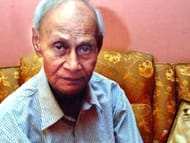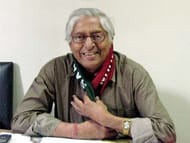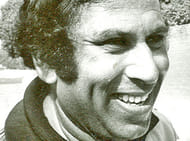The Padma Shri is the fourth highest civilian award with the list of awardees being named every year on the occasion of Republic Day. Sportskeeda celebrates this year’s Republic Day by paying tribute to the Indian footballers who have won this prestigious award.
Gostho Pal (1962)
This great defender was one of the first legends of Indian football and fittingly he became the first footballer to win this prestigious award in 1962. Pal was a Mohun Bagan legend, having played for the club for more than two decades and is considered to be one of the best Indian defenders of all time. Although India played their first official match at the 1948 Olympics, Pal also has the distinction of leading an Indian football team back in 1924. Nicknamed as the ‘Chinese Wall’ of Indian football, Pal was a born leader and his retirement also came in historic fashion. In 1935, Pal led the protests against biased refereeing after a match between Mohun Bagan and the Calcutta Club, a team of the British Raj. The protests were ignored by the British-governed IFA and they wanted to take action against Pal, who eventually retired. The lane in front of the Mohun Bagan ground is named after him as the ‘Gostho Pal Sarani’ where there is also a statue of him.
Sailen Manna (1971)
The second footballer to win the Padma Shri was also another defender and Mohun Bagan legend. Footballers back then used to play barefoot but Manna could still take powerful freekicks and despite playing in defence, he hardly used to foul and was an example for everyone to follow. He was the captain of the India team that won the gold medal at the 1951 Asian Games and also led the team at the 1952 Olympics in Helsinki. In 1953, the English FA even named him among the ten best captains of the world in their yearbook. Although he is best remembered by Mohun Bagan for his 18-year spell there as a player, Manna also served as an administrator at his beloved club and was their unofficial ambassador. The Padma Shri accolade came to him a decade after his retirement and four decades later the All India Football Federation (AIFF) also adjudged him as the ‘Player of the Millennium’. Manna passed away last year with FIFA President Sepp Blatter referring to the former India captain as an ‘inspirational leader’ in his condolence message.
Chuni Goswami (1983)
The third Padma Shri awardee in Indian football is also another Mohun Bagan legend and former India captain. He spent his entire playing career at Mohun Bagan and is considered to be one of India’s best strikers of all time. Ever since his international debut in the 1956 Olympics, where India finished fourth, Goswami looked like a player capable of achieving international greatness. Goswami was a great goalscorer but would frighten defenders with his amazing dribbling skills and his very own ‘360-turn’. He led India to the Asian Games gold in 1962 and was also the skipper in the 1964 Asian Cup, where India finished runners-up, their best-ever finish in that competition. He also reportedly turned down an offer from Tottenham Hotspur as he enjoyed being a star in India. In 1963, he became only the third footballer to win the prestigious Arjuna Award and twenty years later, he won the Padma Shri. Interestingly, Goswami was also a successful cricketer at first class level and even captained Bengal in two Ranji Trophy finals.
PK Banerjee (1990)
Very few footballers worldwide have had an equally successful playing and coaching career, but former India captain PK (Pradip Kumar) Banerjee can be counted among the exceptions. After a brief spell at the Mohun Bagan junior team, Banerjee moved to Eastern Railway where he spent his entire senior career and even helped them win the Calcutta Football League in 1958, which was the last time a club outside the traditional Big Three won the competition. Despite playing on the right wing, Banerjee had an incredible goal scoring record at international level. Some of his important goals include the one in the 1-1 draw with France in the 1960 Olympics in Rome, where he was also the captain, and a strike in the 1962 Asian Games final which India won 2-1 against South Korea. He was the first footballer to win the Arjuna Award in 1961, the Padma Shri Award came in 1990 and FIFA adjudged him the best Indian footballer of the 20th century. As a coach, he had enormous success both at East Bengal and Mohun Bagan and even held the posts of head coach and technical director of the India national team.
Bhaichung Bhutia (2008)
The last Indian footballer to win the Padma Shri was Bhaichung Bhutia in 2008 and thus, he is till date the only footballer to win the accolade while still playing. Following his humble beginnings in Sikkim, Bhaichung moved to East Bengal at the age of 16 and never looked back ever since. The legendary striker is India’s youngest ever goal scorer and in 1999, he became only the second Indian to play abroad as he signed with English third division outfit Bury FC. Bhaichung also had spells at Malaysia but it was at East Bengal where he enjoyed his best days with the 2003 ASEAN Cup success, where he finished as the top scorer, being the highlight. Under his captaincy, India won several international trophies with the 2008 AFC Challenge Cup, where Bhaichung was adjudged the MVP, being the most important as it saw India qualify for the 2011 Asian Cup. Off the pitch, despite his international retirement, Bhaichung is still considered the Indian football icon and he is also an administrator now as he co-owns United Sikkim, who currently play in the I-League.




